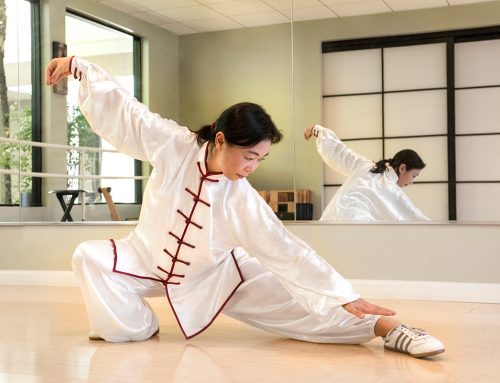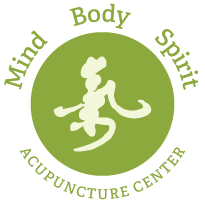What is Qigong?
Qigong is a set of visualizations accompanied by gentle physical movements. “Qi” is the Chinese word for the vital force energy in our bodies. “Gong” is the ability, developed with practice, to move the vital force energy in our bodies.
Why do we want to move the qi in our bodies? According to Traditional Chinese Medicine, there are channels in the body through which qi flows; a person is healthy when the qi is able to move freely along these channels (“meridians”). Illness occurs when blockages build up; clearing the meridians to allow the free flow of qi is necessary for the restoration of health.
Qigong, like acupuncture, helps to clear the channels, thereby making the restoration and maintainance of health possible. Unlike acupuncture, Qigong is completely in the control of the practitioner; it allows a person to heal him or herself.
Health in Traditional Chinese Medicine includes Mind, Body, and Spirit. In truth, Mind, Body, and Spirit can never be separated.
Therefore, people who practice Qigong soon discover improvements in their emotional well-being and mental abilities, as well as improvements in their physical condition.
One of the most effective and popular forms of Qigong today is Soaring Crane
History of Qigong:
It is believed that the concept of moving qi in the body originated in India more than 6000 years ago, then gradually spread throughout Asia. Qigong predates and underlies yoga, the martial arts, and many types of healing.
Qigong developed to a sophisticated level in China during the past 4000 years. Ancient Taoists included Qigong as part of the evolving field of Traditional Chinese Medicine. Historic qigong forms developed along four main lines: increasing physical prowess, increasing longevity, providing access to one’s own spirituality, and improving one’s health. Many of today’s qigong forms incorporate elements of all four lines of classical qigong .
“Health” in Traditional Chinese Medicine, as in many medical systems, includes Mind, Body, and Spirit. Therefore, health effects of Qigong include effects on physical body, mental functioning, emotions, and spirit. In truth, mind, body, and spirit can never be separated. People trying to function in a society that attempts to separate mind, body, and spirit often feel fragmented or lost, with a need to “connect with a larger universe” and to seek wholeness. Qigong is one of many routes to that wholeness.
What Qigong can do for you?
Qigong (“Chee gong”) is generally described as a sequence of gentle movements combined with visualization. In truth, the mental work–the visualization–IS the Qigong. The moving of the qi, the healing and the transformative power of Qigong, is all in the mental work; the physical movements add the element of exercise.
Practicing Qigong balances all systems of the mind, body, and spirit. Because Qigong provides the balance you specifically need, it can help you:
- Lower (or raise, if needed) your blood pressure
- Improve your ability to balance
- Increase your flexibility
- Feel more centered
- Relax
- Sleep better
- Clear toxins out of your body
- Improve your ability to handle stress
- Balance your energy (increase, decrease, or smooth out)
- Boost your immune system
- Access your own spirituality
- Develop your psychic powers
- Increase your creativity
- Boost your mental powers
- Become healthier in mind, body, and spirit


